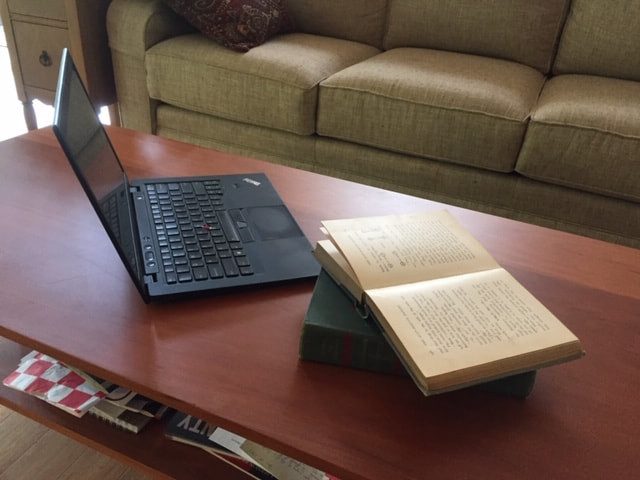|
Misinformation abounds. I haven’t actually heard “I did my research” to defend weak claims, but I’ve read rebuttals: “Searching websites isn’t research. You didn’t use a control group, or do statistical analysis, or apply the scientific method.”
Rubbish. Historical research rarely involves any of the above. Many materials once found only in libraries are available online. What is research, anyway? What do a fourth-grader’s report, a high school term paper, and a grant-funded scholarly investigation have in common?
6 Comments
Dennis Doren
7/26/2021 08:02:38 am
I find the question “how do we know what we know” to be so fundamental that the vast majority of us rarely ask this of ourselves. By our having done “research” is one possible answer but as you point out, that answer can mean a lot of things. I have to disagree with seeing all of your listed methods of “research” as or equal veracity/utility, though. For many people under many circumstances, “research” involves asking their friends and family what they think, or going to the same media source over and over. Synthesizing the information from even “multiple sources” of this type rarely involves exposing oneself to information contrary to the inherent selection bias of friends and family and our media choice; despite also being a “proactive quest” and resulting in new knowledge. The process of selection bias in our chosen sources of information has, in my view, become a significant problem in our country - often encapsulated in the phrase “FOX versus CNN”. No matter how many sources a proactive “researcher” consults, if they are all selected with the same bias (which is what humans tend to do, on either side of the political spectrum), this constitutes what is called “confirmation bias” - “proving” what you already think you know by selecting only sources of information you have reason will give you that confirmation. This, to me, is not research, but regularly is described even to ourselves as such. Research, to me, is not a proper label for the process of seeking only information with which we are psychologically comfortable.
Reply
7/26/2021 10:45:16 am
Dennis, I totally agree about the dangers of selection bias - not only to our findings but to our public life. I have this (perhaps romanticized) image that when everyone watched Walter Cronkite, before we had such a wide range of sources to choose from, we were less polarized even though we didn't all agree.
Reply
7/26/2021 09:30:45 am
Dennis has a good addition to what you've begun, Sarah. Thanks to you both. I agree with Dennis that many people don't really know what "research" means. Research is a tough task and calls for digging deep and often being wrong (at first) because of the facts we find. But research is always fun because there's this exhilarating effect in the end that says "we did it." We spent the time. We spent the energy and courted being wrong in our first assumption or even our tenth assumption. This relentless research is what true creativity is all about. We explore and being wrong or finding out something we didn't expect is so valid and wonderful. Nice post, Sarah! Our better sleuths in our fiction are sometimes researchers, but most are just trying to validate their assumptions. That's something to think about, too, as we write and read.
Reply
7/26/2021 11:04:59 am
Christine, yes, research is tough and fun for all the reasons you say. On hearing I was writing historical fiction, occasionally a writer in another genre would say, "But you have to do so much research." I would beam and say, "Yes! Isn't it wonderful?"
Reply
7/26/2021 11:11:52 am
Nice conversation you've started, Sarah. I think research is different for biologists versus historians for example. Perhaps we need separate words for the process. In Spanish, the word for research is investigar, which describes it well for me. I love to investigate a new subject and get immersed in it. That is what I love to write about on my website.
Reply
7/27/2021 07:58:50 am
I like thinking of it as investigation. (Aren't cognates wonderful?) The downside of separate words for biological vs historical research is that we would probably need a hundred words - what astronomers do is different from epidemiologists from linguists from . . . But investigation fits it all, a systematic quest to find out.
Reply
Leave a Reply. |
AuthorI'm a historian who writes novels and literary nonfiction. My home base is Madison, Wisconsin. Archives
July 2024
|

 RSS Feed
RSS Feed